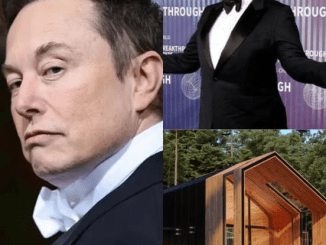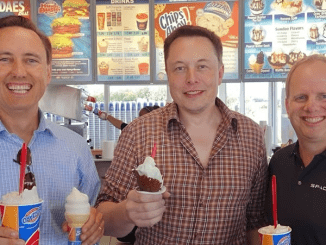
In a surprising move that has drawn both praise and controversy, tech mogul Elon Musk has made an extraordinary donation of $112 million worth of Tesla stock to combat homelessness. The donation, one of Musk’s largest philanthropic efforts in recent years, is aimed at providing financial support to homeless individuals and families across the United States. However, the details of the donation come with conditions that have left many questioning the true intent behind the gesture.
The Massive Donation: A Step Toward Addressing Homelessness
The donation, reportedly consisting of 400,000 shares of Tesla stock, was made public in a statement earlier this week. Musk, the CEO of Tesla and SpaceX, has long been known for his ambitious ventures and outspoken views on various social and environmental issues. This donation is seen as part of his broader efforts to use his vast wealth to make a meaningful impact on pressing global issues.
Homelessness has become a persistent crisis, particularly in major urban centers like Los Angeles, San Francisco, and New York. Advocates have applauded Musk’s gesture, acknowledging that a significant cash infusion is crucial for organizations and initiatives aimed at providing shelter, medical care, food, and long-term rehabilitation services for homeless individuals.


The Shocking Conditions: What’s in the Fine Print?
While the donation is undoubtedly substantial, some aspects of Musk’s offer have raised eyebrows. According to sources familiar with the donation’s terms, the money will not be directly distributed to shelters or homeless support organizations. Instead, the funds will be used to support Musk’s own initiative to develop a series of “self-sustaining homeless communities” based on a model of tiny homes and urban farming.
These communities, which Musk refers to as “Muskville,” will be built on land provided by local governments, and the people living in them will be expected to participate in communal farming projects, with a focus on creating renewable energy solutions. While the proposal might sound innovative to some, critics have argued that this “community model” comes with strict and somewhat controversial guidelines.
One particularly contentious condition is that residents must contribute a portion of their earnings (if employed) or participation in the community’s operations. This includes work on sustainable farming projects, renewable energy initiatives, and other “Musk-supported” ventures. Failure to comply could result in expulsion from the community, effectively defeating the purpose of providing a safety net for those in need.
Another condition that has generated skepticism is Musk’s insistence that the homeless individuals living in these communities be trained in a variety of technical skills, particularly those related to Tesla’s business operations. The proposal has raised concerns that Musk’s donation might be more about building a low-cost labor force than addressing the deeper, systemic issues of homelessness.
Supporters and Critics Weigh In
On one hand, Musk’s supporters point out that his approach to homelessness is revolutionary and could introduce self-sufficiency to people who have long relied on temporary shelters or government support. They argue that the focus on renewable energy, technology, and self-sustaining communities could not only help individuals rebuild their lives but also contribute to environmental sustainability.
However, detractors of the plan argue that it feels more like an experiment in social engineering than a true effort to alleviate homelessness. Some have accused Musk of using his immense wealth to push an agenda that benefits his businesses, particularly Tesla and SpaceX, under the guise of philanthropy. Critics also worry that the community model could perpetuate a cycle of poverty and exploitation, with little regard for the complexities of homelessness, such as mental illness, addiction, or a lack of access to quality healthcare.
“While the donation itself is admirable, it’s concerning that Musk seems to be turning the homeless into a workforce for his own enterprises,” said one homelessness advocate, who wished to remain anonymous. “Rather than empowering individuals to live independently, it feels like an attempt to control and shape their lives according to his vision.”
What’s Next for Musk’s Philanthropic Venture?
As the donation is still in its early stages, it remains unclear how exactly the “Muskville” communities will be structured or how many people will be able to participate. Some experts have raised questions about the feasibility of creating such communities at a large scale, given the complexities of zoning laws, the availability of suitable land, and the potential backlash from local residents.
Elon Musk has not yet commented on the growing criticism of his donation’s terms, but with his history of unconventional approaches to problem-solving, it seems unlikely that he will back down. As the project progresses, many are watching closely to see whether Musk’s vision will indeed offer a lasting solution to homelessness or if it will become another example of his polarizing approach to philanthropy.
While some applaud Musk for using his wealth to address such a critical issue, the conditions attached to his donation suggest that Musk’s philanthropy may be more complicated—and controversial—than many first imagined. Only time will tell whether his unique approach will have the desired effect or if the fine print of his donation will ultimately prove to be a stumbling block in the fight against homelessness.


